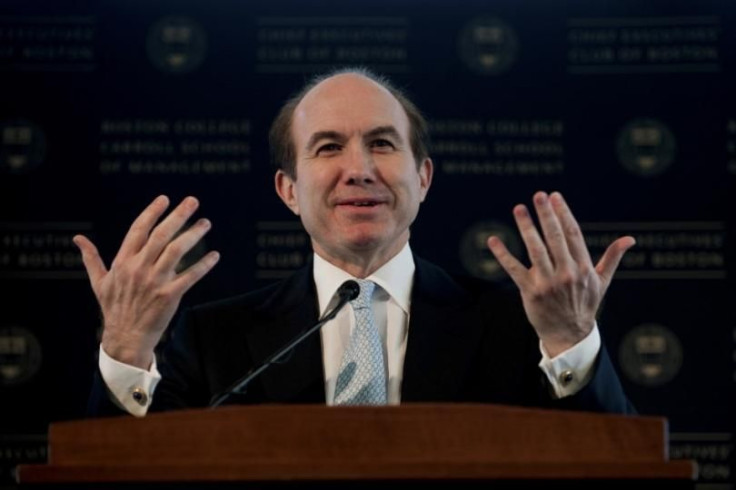Snapchat Won’t Save Viacom (VIAB), Analysts Say; Philippe Dauman Touts Ad Deal To Soften Poor Earnings

Viacom CEO Philippe Dauman’s tenure as chairman of the board may have only just begun, but it’s off to a rocky start as the faltering media giant reported another disappointing quarter to end the 2015 calendar year. The company underperformed by just about every measure possible compared with the same quarter in 2014, and was saved from a missed earnings per share estimate by some adjustments.
Total revenue of $3.15 billion was down 6 percent from the same quarter in 2014 and net earnings of $449 million were down 10 percent from 2014, despite a 4 percent decrease in expenses. The unadjusted EPS came in at $1.13 for the quarter; with adjustments, that increased to $1.18, right on Wall Street’s target.
Dauman added the chairman title last week, when the Viacom board voted to replace aging mogul Sumner Redstone with Dauman. Redstone’s daughter Shari Redstone objected to the appointment of someone so closely tied with her father’s financial arrangements, releasing a terse statement that simply said, “Shari is going to continue to advocate for what she believes to be in the best interests of Viacom shareholders.”
Perhaps a little tired of the infighting narrative, Dauman came into the Viacom earnings call Tuesday morning armed with a distraction for investors: a partnership with Snapchat that goes far beyond the usual content-publishing deal. Viacom will be a publisher and vendor — the only company allowed to sell ads for Snapchat-owned content.
Snapchat, being a private company, doesn’t talk publicly about gauche things like ad revenue, but a Re/code report in 2015 indicated the company was set to make around $50 million from marketers for the full year.
For context, Viacom generated $1.32 billion in ad revenue just in the last quarter of 2015, down 3 percent from the same quarter in 2014.
Viacom, then, has all those long-standing relationships with advertisers that a newbie like Snapchat covets and doesn’t quite seem to have the ability to properly serve, analytics-wise.
But what does Viacom get out of all this? “It’s a great deal for the advertisers we deal with,” said Viacom Chief Financial Officer Wade Davis on the earnings call. “It provides them with a suite of products to reach a very hard-to-reach audience.” That would be the legions of 12-to-34-year-olds who aren’t watching television, but who are checking out all the content being poured into apps like Snapchat.
The investor community remains doubtful of the deal’s impact. “The return on investment is unclear, and the market is cluttered with other social venues vying for audiences and ad dollars,” Paul Verna, senior analyst at eMarketer, told International Business Times. “This arrangement could work, but only if Snapchat becomes an indispensable destination for brand marketers, and if Viacom can effectively use this channel to broaden its reach.”
Viacom has been moving toward becoming something resembling an ad agency of its own of late. In 2014, it introduced Viacom Velocity, a group that creates branded content for advertisers and finds ways to stick it in Viacom-owned properties. Dauman claimed Velocity now has 11 advertisers signed up for Velocity, and anticipates the number to triple by the end of the year.
In better news for those advertisers, ratings for several of the Viacom networks have finally pulled out of their nosedive, leading to a bit of a bounce-back in ad revenue at those networks.
The problem is that the holdouts are MTV and Comedy Central, two of Viacom’s most important brands. MTV has struggled mightily the last few years, enduring a bit of a midlife crisis, and though Comedy Central has returned to comedy powerhouse status with critically acclaimed scripted series (“Inside Amy Schumer,” “Broad City,” “Nathan for You”), the changeover from Jon Stewart’s “Daily Show” to Trevor Noah’s “Daily Show” hasn’t gone smoothly, and viewers aren’t yet coming back in the droves advertisers want to see.
Dauman is determined to turn them into money anyway. “I will leave no stone unturned,” he said. “My singular objective is to protect and build value for Viacom shareholders.”
Viacom shareholders responded to this declaration by driving the stock price down around $6, or nearly 14 percent, as of publication.
© Copyright IBTimes 2024. All rights reserved.






















